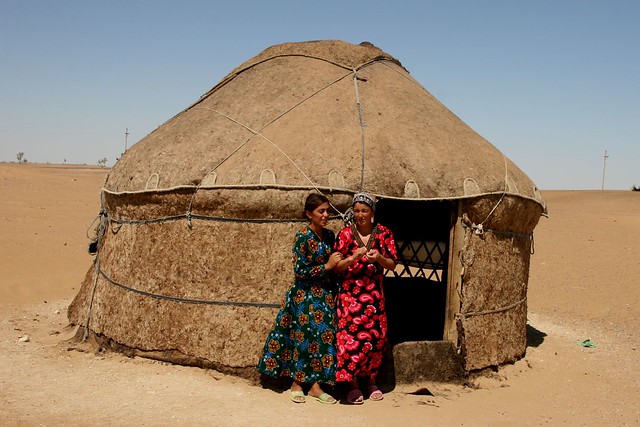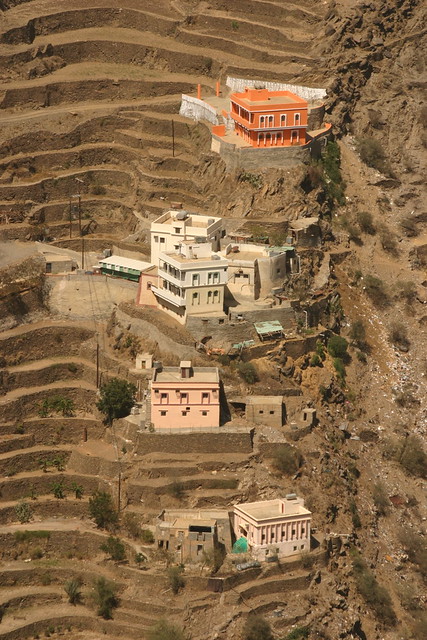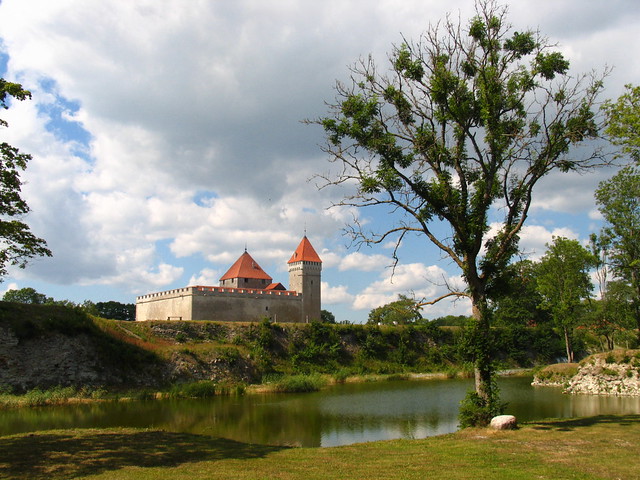Galeria de retlaw snellac
the world part 1
Created with Admarket's flickrSLiDR.

germany - berlin
Sony Center (Berlin, Germany).
Shortly after the fall of the Berlin Wall, Sony began planning a large development at Potsdamer Platz, in the historical center of Berlin, Germany. In recognition of a shifting geography within Europe, Sony decided to establish its European headquarters at this location. In 1994, Tishman Speyer was selected by Sony from several international groups to be its developer and partner on this landmark project. Based on its global reputation and track record in Germany, Tishman Speyer was asked by Sony to undertake a re-evaluation of the project from the ground up, its concept, design, and cost. Designed by architect Helmut Jahn, the Sony Center is an elegant and modern vision of glass, stainless steel, and natural stone. Tishman Speyer analyzed the Sony plan and reconfigured the buildings as well as their uses to create a variety of space types that would be appropriate for the evolving Berlin market. The result is a program
that includes eight different buildings with separate identities and varied sizes which house a mix of cinema, retail, dining, office, residential and cultural uses. In the center is a dramatic roofed space, the "Forum," which serves as a public space and entertainment complex. In addition, Tishman Speyer was responsible for coordinating the project's tie-ins to area infrastructure projects, which include two tunnels constructed for rail, subway and automobile traffic. The residential component at Sony Center is comprised of 60 rental units and 134 Condominium apartments. The rental units range from 409 square feet to 1,610 square feet and include Poggenpohl kitchens, below floor heating and dramatic views of the Sony Forum and the City. The 134 condominium units are constructed above the former historic Esplanade Hotel, which was restored as part of the overall development. Several of the hotel’s landmarked rooms were integrated in the complex and its entry was redesigned to create an exciting lobby to serve the apartments. Built to the highest standards of luxury and design, the units range from 665 square feet to 2,520 square feet. The complex incorporates a fully integrated living environment based on modern technologies and advancements in sustainable design. One of its most innovative and unique features is the Forum. This area’s environment is maintained through the majority of the year, solely on its embodiment with the surrounding buildings. This makes a usable space without the consumption of additional energy that an enclosed building would have required. Rain water is collected within the Forum and held in tanks below the largest office tower and used for toilet flushing. Additionally, the buildings share mechanical systems and incorporate a highly efficient façade allowing for the right sizing of equipment and lower first costs along with reduced energy consumption and operating costs. At construction completion the project achieved the highest rents in Berlin and was fully leased. The Sony Center is now a landmark destination visited by locals and tourists alike. The Urban Land Institute’s Awards program, which recognizes excellence in the full development process of a project, selected Sony Center to receive
the organization’s 2000 International Award for Large Scale Mixed Use. The Sony Center was selected for this award out of 27 worldwide finalists, once again highlighting Tishman Speyer’s innovative use of space and design.

sudan - the black pharaohs
The Kiosk at Naqa.
Right next to the Lion Temple is an unidentified edifice known as the Kiosk, reflecting an amalgam of different cultures. Kushite, Egyptian, along with Roman, have all left a distinctive mark on its architecture.
There developed a major cultural link from Alexandria through the Red Sea ports to which Meroe connected. This was associated with the eventual rise of the port towns to become the independent state of Axum, which contributed to the demise of Meroe in 325 A.D.

india - ladakh
Young female monks teaching each other in the Thardot Choeling Nunnery (dependent on the Rizong Monastery).

the silk road
In summertime semi-nomads live in the Kyzylkum desert; most of them are shepherds.

india - orissa
Irrigation of the rice fields in Orissa.

berlin
Ancient art in the Altes Museum of Berlin.
Bust of Nefertiti.
Nefertiti (c. 1370 BC - 1330 BC) was the Great Royal Wife (chief consort) of the Egyptian Pharaoh Akhenaten. Nefertiti and her husband were known for changing Egypt's religion from a polytheistic religion to a henotheistic religion. They revered only one god, Aten, the sun disc. This was not strictly monotheism, as they did not deny the existence of other gods.She had many titles; for example, at Karnak there are inscriptions that read Heiress, Great of Favours, Possessed of Charm, Exuding Happiness, Mistress of Sweetness, beloved one, soothing the king's heart in his house, soft-spoken in all, Mistress of Upper and Lower Egypt, Great King's Wife, whom he loves, Lady of the Two Lands, Nefertiti'.
She was made famous by her bust, now in Berlin's Altes Museum. The bust is one of the most copied works of ancient Egypt. It was attributed to the sculptor Thutmose, and it was thought to have been found in his workshop. The bust itself is notable for exemplifying the understanding Ancient Egyptians had regarding realistic facial proportions. Recently, it has been suggested by Swiss art historian Henri Stierlin that the bust is a copy dating from 1912. Some scholars believe that Nefertiti ruled briefly after her husband's death and before the accession of Tutankhamun as Smenkhkare, although this identification is a matter of ongoing debate.

cambodia
Wat Moi Roi.
Wall paintings.
Sambor is famous for having the largest wat in Cambodia, named Wat Moi Roi or the 100 Columns Temple. It was constructed on the site of a 19th-century wooden temple, a few pillars of which are still located at the back of the compound.

saudi arabia
Al Ula is characterised by its attractive natural scenery marked by the reddish sandstone inselbergs carved by natural agencies into beautiful and attractive shapes. Sand dunes and inselbergs combined together to form a wonderful display of thrilling nature. During winter and spring, after the rain, the areas turns into green fields attracting the inhabitants and visitors from outside the region.
Al Ula is situated northwest of Saudi Arabia. It is about 400 km north of Al Madinah.

saudi arabia - fifa mountains
Fifa is a montanious distinguished area in the south-west of Saudi Arabia and contains a lot of attractive sites.

istanbul - turkey
New Mosque (Istanbul).
The New Mosque (Yeni Camii) in Istanbul is not that new - it was built in the 1600s. Located on the water's edge next to the Galata Bridge, the Yeni Camii has become a defining feature of Istanbul's skyline.
Begun by Valide Safiye, mother of Sultan Mehmet III, in 1597, the mosque was designed by the architect Da'ud Aga, a pupil of Sinan. The chosen site was then a poor neighborhood; the inhabitants were paid to move out. Construction initially dragged on for several decades due to water seeping and funding problems, then stopped completely when the sultan died - Safiye was no longer the Queen Mother so she no longer had the revenues or power to support the project. The mosque was completed by another queen mother, Valide Sultan Turhan Hattice, mother of Mehmet IV (1642-93).
The New Mosque overlooks the harbor next to the Galata Bridge on the Golden Horn. The beautiful exterior consists of a great courtyard, two slender minarets, and a cascade of domes tumbling down from a central dome. Hundreds of pigeons make their nests among the architecture. The interior is decorated with Iznik tile, gold and marble. Valide Sultan Turhan Hattice is buried in the courtyard along with sultans Mehmet IV, Mustafa II, Ahmet III, and Mahmut I.

india - zanskar
Landscape in Zanskar.

yemen
On July 2, 2007 a terror attack at the ancient Mahram Bilqis Temple at Ma'rib in Yemen caused the death of several Spanish tourists and Yemeni people.

estonia - saaremaa kuressaare castle
The Kuressaare Episcopal Castle is Kuressaare's main tourist attraction. It is the only entirely preserved medieval stone castle in all of the Baltic Nations. Ringed by a large and beautiful park, a moat and imposing bastions erected during the mid 17th century, the castle is in the unyielding, geometric, late-Gothic style, made of white-grey dolomite quarried in Saarema. Each corner is crowned by a tower with an orange turret and at the heart of the castle is a tiny, symmetrical courtyard.
Some of the castle's upper rooms house the Saarema Museum.

india - ladakh
Stakna Monastery.
Stakna Gompa of Ladakh is situated on the right bank of the Indus River, at a distance of approximately 25 km from the town of Leh. The name, 'Stakna' literally means 'tiger's nose'. The monastery was so named because it was built on a hill, which is shaped just like a tiger's nose.
Stakna Monastery of Leh Ladakh owes its inception to Chosje Jamyang Palkar, the great scholar saint of Bhutan. It formed a part of the many religious estates offered by the Dharmaraja Jamyang Namgial to the saint, around 1580 AD.
The central image inside the monastery is that of the sacred Arya Avalokitesvara from Kamrup (Assam). Stakna belongs to the Dugpa order and serves as the residence of approximately 30 monks. The successive reincarnations of the Stakna Tulku continue to serve as the incumbents of the monastery, preserving the teachings of the Dugpa order. Stakna Gompa also has a number of monasteries attached to it, namely Mud and Kharu and those of Stakrimo, Bardan and Sani in Zanskar.
On entering the central courtyard, one comes across the Dukhang (main assembly hall). The head lama got seven feet high, silver gilted chorten erected inside the Dukhang, in the 1950s. The chorten comprises of a statue of the Buddha as well as numerous Buddhist texts. The left wall of the Dukhang is adorned with three new paintings, those of the Tsephakmad (a Buddhist deity), Sakyamni (the Historical Buddha) and Amchi (the Medical Buddha).
The wall opposite to the Dukhang entrance is also painted with three images, those of a Bodhisattva, Padma Sambhava (8th century Indian Buddhist scholar and translator of Buddhist texts into Tibetan) and Tshong-san-gompo (an early king of Tibet). To the right of the hall are the statues of Sakyamuni (Past Buddha), the Present Buddha and Maitreya (Future Buddha). And, the throne of the head lama of Stakna lies on the left side of the Dukhang

paris
La Notre-Dame.
| The Ultimate Self Realization Course (tm) | | |
| Special New Release--Hear It Right Now!! | Special Announcements!
| See Sankarshan Prabhu's | |
| Get Krishna's Special Mercy by Rendering Devotional Service If you'd like to contribute something to help cover the expenses of Sankarshan Prabhu's European Lecture Series you can | On the order of his spiritual master, Srila Prabhupada, Sankarshan Prabhu has dedicated his life for the most urgent work of spreading Krishna consciousness all over the world. The more that Krishna consciousness spreads, the more that the suffering, scarcity, and hate on this planet will be replaced with bliss, abundance and love. This is a golden opportunity for us to do the highest good for all living beings and receive the special blessings of the Lord. Therefore we should, as much as possible, sacrifice our time, energy, and resources to assist Sankarshan Prabhu in his most important work. If you would like to help out to any extent, little or big, kindly inform Sankarshan Prabhu of your desire. | Meet If you would like to meet Sankarshan Prabhu or hear his lectures, you may contact us directly for an appointment or specific information on where and when his lectures will be held. | |
| Do You Have Questions or Need Guidance? | All inquiries are welcome. | Contact Information: Phone: 1-512-835-2121 or Email your questions |

 Sri Krishna Janmastami
Sri Krishna Janmastami Maha Kalash Abhisekha
Annual Patron Member Puja You are cordially invited to sponsor a Golden Kalash to bathe Sri Sri Radha Krishna, on the most auspicious day of
Sri Krishna Janmastami
(September 4, 2007)
This is a wonderful chance for you and your family to sponsor a beautiful bathing ceremony for Sri Sri Radha and Krishna. With your generous sponsorship, you will get to keep the sacred Kalash that the temple priest uses to bathe the Lord on your behalf. We will mail you your golden Kalash along with a wonderful assortment of prasadam sweets that will be offered to Sri Sri Radha Krishna on Janmastami. Your tax deductible contribution with help us to maintain and develop the worship of Lord Krishna.
Your golden Kalash is an amazingly beautiful transcendental work of art that your family will treasure for many generations. It will be shipped to you in a red velvet box as seen above:
There is a very limited supply. So if you would like to to sponsor a Kalash, do so right away before they are all taken: www.backtohome.com/Kalash
| ||
| Home | Thought for The Day | Audio | Videos | Photos | Itinerary | Meditations on Pure Bhakti | Offerings | Services | ||
|

Up

TABLA - FUENTES - FONTS
SOUV2
- SOUV2P.TTF - 57 KB
- SOUV2I.TTF - 59 KB
- SOUV2B.TTF - 56 KB
- SOUV2T.TTF - 56 KB
- bai_____.ttf - 46 KB
- babi____.ttf - 47 KB
- bab_____.ttf - 45 KB
- balaram_.ttf - 45 KB
- SCAGRG__.TTF - 73 KB
- SCAGI__.TTF - 71 KB
- SCAGB__.TTF - 68 KB
- inbenr11.ttf - 64 KB
- inbeno11.ttf - 12 KB
- inbeni11.ttf - 12 KB
- inbenb11.ttf - 66 KB
- indevr20.ttf - 53 KB
- Greek font: BibliaLS Normal
- Greek font: BibliaLS Bold
- Greek font: BibliaLS Bold Italic
- Greek font: BibliaLS Italic
- Hebrew font: Ezra SIL
- Hebrew font: Ezra SIL SR
Disculpen las Molestias

Up
Sankarshan Das Adhikari - ANUAL
Conceptos Hinduistas (1428)SC
Aa-Anc · Aga - Ahy · Ai - Akshay · Akshe - Amshum · Ana - Ancie · Ang - Asvayu · Ata - Az · Baa-Baz · Be-Bhak · Bhal-Bu · C · Daa-Daz · De · Dha-Dry · Du-Dy · E · F · Gaa-Gayu · Ge-Gy · Ha-He · Hi-Hy · I · J · K · Ka - Kam · Kan - Khatu · Ki - Ko · Kr - Ku · L · M · N · O · P · R · S · Saa-San · Sap-Shy · Si-Sy · Ta - Te · U · V · Ve-Vy · Y · Z
Conceptos Hinduistas (2919) SK
Aa-Ag · Ah-Am · Ana-Anc · And-Anu · Ap-Ar · As-Ax · Ay-Az · Baa-Baq · Bar-Baz · Be-Bhak · Bhal-Bhy · Bo-Bu · Bra · Brh-Bry · Bu-Bz · Caa-Caq · Car-Cay · Ce-Cha · Che-Chi · Cho-Chu · Ci-Cn · Co-Cy · Daa-Dan · Dar-Day · De · Dha- Dny · Do-Dy · Ea-Eo · Ep-Ez · Faa-Fy · Gaa-Gaq · Gar-Gaz · Ge-Gn · Go · Gra-Gy · Haa-Haq · Har-Haz · He-Hindk · Hindu-Histo · Ho-Hy · Ia-Iq · Ir- Is · It-Iy · Jaa- Jaq · Jar-Jay · Je-Jn · Jo-Jy · Kaa-Kaq · Kar-Kaz · Ke-Kh · Ko · Kr · Ku - Kz · Laa-Laq · Lar-Lay · Le-Ln · Lo-Ly · Maa-Mag · Mah · Mai-Maj · Mak-Maq · Mar-Maz · Mb-Mn · Mo-Mz · Naa-Naq · Nar-Naz · Nb-Nn · No-Nz · Oa-Oz · Paa-Paq · Par-Paz · Pe-Ph · Po-Py · Raa-Raq · Rar-Raz · Re-Rn · Ro-Ry · Saa-Sam · San-Sar · Sas-Sg · Sha-Shy · Sia-Sil · Sim-Sn · So - Sq · Sr - St · Su-Sz · Taa-Taq · Tar-Tay · Te-Tn · To-Ty · Ua-Uq · Ur-Us · Vaa-Vaq · Var-Vaz · Ve · Vi-Vn · Vo-Vy · Waa-Wi · Wo-Wy · Yaa-Yav · Ye-Yiy · Yo-Yu · Zaa-Zy







No hay comentarios:
Publicar un comentario